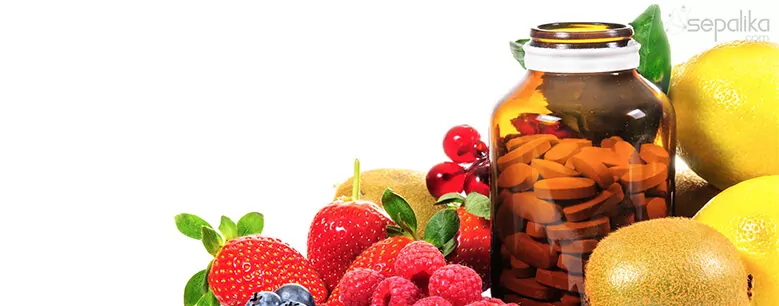While a balanced diet is what we should always seek, the reality is that most of our diets are skewed towards being acidic – between the processed foods, the artificial sweeteners and the refined flour and sugar. For many of us, such food habits throw our body into low-grade acidosis – a state where the pH level in our body is more acidic than desirable. To correct this imbalance, here are some easy tips on how to restore the pH balance in the body by getting high alkaline foods into our system.
What to Do For An Alkaline Diet
- In the morning, before breakfast combine the juice of half a lemon or lime with a glass of water; repeat this across the day. You could also use apple cider vinegar instead of the lemon.
- Eat a diet of 50% plant foods (vegetables, fruits, nuts seeds etc.) and make at least 25% of these raw – raw foods not only maintain the correct acid/alkaline balance in the body, but also are also richer in nutrients.
- Consume fresh green vegetable juices (it’s ok to juice other vegetables and a small amount of fruit to add to these).
- Drink at least 2 liters of water a day.
- AVOID – ALL processed foods, sugary foods, soft drinks and fast foods.
- Minimize salt, coffee, alcohol, red meats, and dairy.
- Exercise, Breathe and Reduce Stress.
- Ensure 7-8 hours of quality sleep per night.
Dietary Supplements

Dietary Supplements for alkaline diet
A growing body of research has now clearly documented clinical benefit through diet and alkalinizing supplements. A diet rich in fruits and vegetables and low in animal protein and salt reduces acid load and is consistently associated with greater bone density.
Potassium Citrate 99mg Daily And Magnesium Citrate 300-400mg Per Day.
Alkalization through supplementation with potassium and magnesium citrates decreases urinary excretion of calcium, increases bone density, and decreases fracture.
Equally important is the research on prevention and treatment of kidney stones. Prospective studies have now shown that supplementation with potassium and magnesium citrates, prevents recurrence of calcium oxalate stones. One study found that 5 of 8 patients completely dissolved their stones after 6 months’ supplementation with potassium citrate/bicarbonate.
Calcium For Adults 1000mg Per Day
Helps reduce the effects of acidosis, including hypertension and decreased bone mineralization. Remember to always balance calcium with magnesium, vitamin D3 and vitamin K2.
Glutamine 2gm Per Day
This amino acid plays an important role in acid-base homeostasis. When ammonia levels are elevated, the body effectively removes ammonia from the blood by synthesizing glutamine. L-glutamine appears to play an indirect role in accelerating acid secretion through mechanistic changes in the kidneys.
Vitamin D 2000IU Per Day
Aids in the uptake of calcium and magnesium
Tri-Salts
They are a blended combination of calcium carbonate, magnesium carbonate and potassium bicarbonate. These three alkaline minerals maintain a healthy acid/alkaline balance in your body by converting acid-residue build-ups into weak acids that can then be excreted in the urine.
Wish you happy alkalizing and vibrant health!
Karena is a clinical nutritionist, health coach, writer and presenter. She runs a private practice dedicated to the integrative and holistic treatment of adults and children with chronic physical and mental conditions and is passionate about educating individuals in health and wellbeing. Karena feels that education through speaking and writing helps prevent chronic illness and directly influences the success of individuals, families and communities as a whole.
References:
- Braun L, Cohen M; Herbs and Natural Supplements – An Evidence Based Guide; 2007; Elsevier.
- Pan M, Meng Q, et al; Stimulation of intestinal glutamine absorption in chronic metabolic acidosis. Surgery 2004; 136:127-134
- Walker AF et al; Magnesium citrate found more bioavailable than other magnesium preperations is a randomized, double-blind study. Magnes Res 16.3 (2003): 183-91
- Welbourne T, Weber M, Bank N. The effect of glutamine administration on urinary ammonium excretion in normal subjects and patients with renal disease; J Clinical Investigation; 1972; 51:1852-1860
- Tucker KL, Hannan MT, Chen H, Cupples LA, Wilson PW, Kiel DP. Potassium, magnesium, and fruit and vegetable intakes are associated with greater bone mineral density in elderly men and women. Am J Clin Nutr. 1999;69(4):727–736.
- Trinchieri A, Esposito N, Castelnuovo C. Dissolution of radiolucent renal stones by oral alkalinization with potassium citrate/potassium bicarbonate. Arch Ital Urol Androl. 2009;81(3):188–191.

